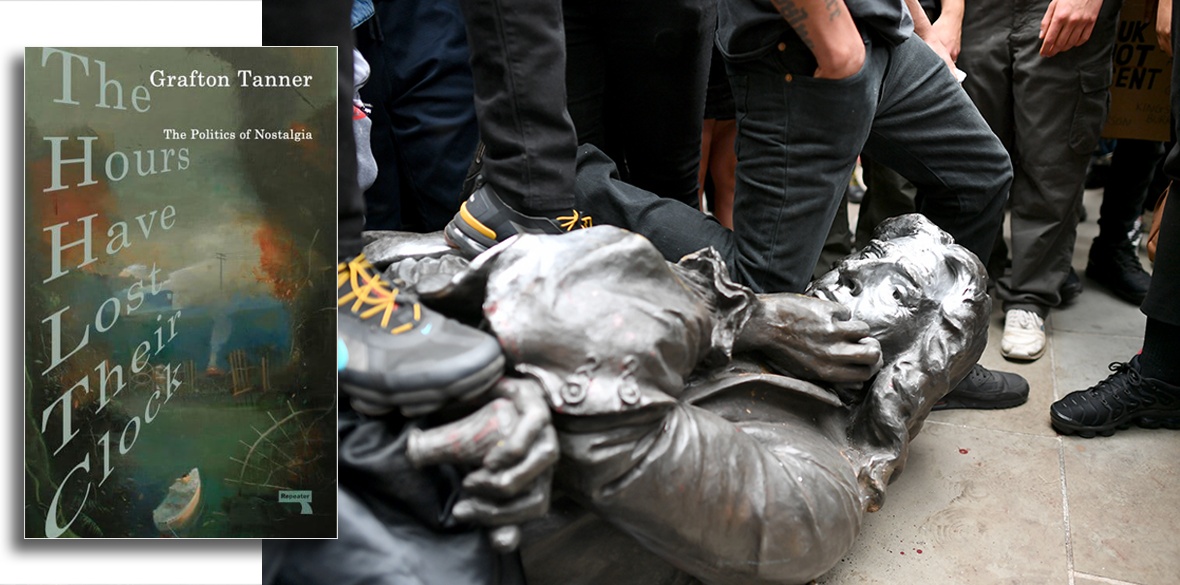This is the last article you can read this month
You can read more article this month
You can read more articles this month
Sorry your limit is up for this month
Reset on:
Please help support the Morning Star by subscribing here
The Hours Have Lost Their Clock
By Grafton Tanner
Repeater Books £14.99
WE ALL live with time, although not necessarily in time. Grafton Tanner, however, believes that we are all increasingly living in a world escaping into nostalgia. Although he recognises that, given the chaos of the present and the fear of a questionable and uncertain future, the past can seem a more comfortable habitation.
The subtitle of his book, The Politics of Nostalgia, signals that this is no celebration of sentimentality. Nostalgia as a word was first coined during the French revolutionary wars when Napoleon’s armies suffered from high levels of stress and desertion owing to homesickness. It was even established as a medical condition.
Although new words do not necessarily denote new things, nostalgia, found largely untreatable by the medical fraternity, quickly established itself as a commercial and political tool in promoting the interests of capitalism.
“Many people mistrust nostalgia. They associate it with conservative politics and movements that trick people into ideologically backward mindsets.” From his US base, Tanner regards the Trump election and Brexit as examples of this “global malaise” – people encouraged to look back to recapture an illusory Utopian age when the respective nations were “great,” cordoned off from intrusive migrants.
His observation that many, living in “none- places” wiped clean of diversity and social bonding by corporate makeovers, yearn for nostalgia-scapes providing an anchor to some kind of meaning, reminds me of the phoney neo-Georgian prettiness of Prince Charles’s Poundbury.
Tanner sees time not in linear terms progressing from one period to another but as folded layers whereby the past can “percolate” up into the present, sometimes not comforting but as a “monster everyone thought had been buried in the past.”
In a powerful chapter on war, he sees the US existing in a state of perma-war, war that is endless and everywhere, militarising society and giving rise to “nostalgic nationalism.”
In the ongoing world of racial tensions, US culture too plays its part, through sentimental films and popular songs, seductively “waging a war on memory.”
Of current interest for British readers are Tanner’s observations on the role of public monuments, which serve to fix memory, holding it through their durability. Statues of almost exclusively upper-class men preserve their values, outlasting their physical existences. “In cities across the world, police have killed largely with impunity, under the ever-watchful gaze of statues depicting some of history’s most brutal racists, bigots and imperialists.”
Having covered the overtly political uses of nostalgia, Tanner turns to the nostalgia industry’s commercial exploitation, “commodifying our collective ache.”
A book which engages critically with entertainment, film, education, technology and the media ranges widely, relating many aspects of our lives to the nostalgia industry with its global ideological force.
Our desires and needs are increasingly shaped by algorithms and bots, what Tanner terms “living corpses,” influencing politics, social relationships and individual wellbeing, determining the “music we listen to, the shows we watch, the news we read and the opinions we hold.”
Moreover, these dangerous Big Tech tools necessarily base their findings on past data, preventing imaginative and innovatory planning for the future.
If not an optimistic, this is an informative, thought-provoking book, reflecting our out of joint times and warning that there is no escape into the past.










